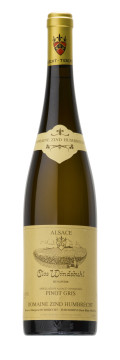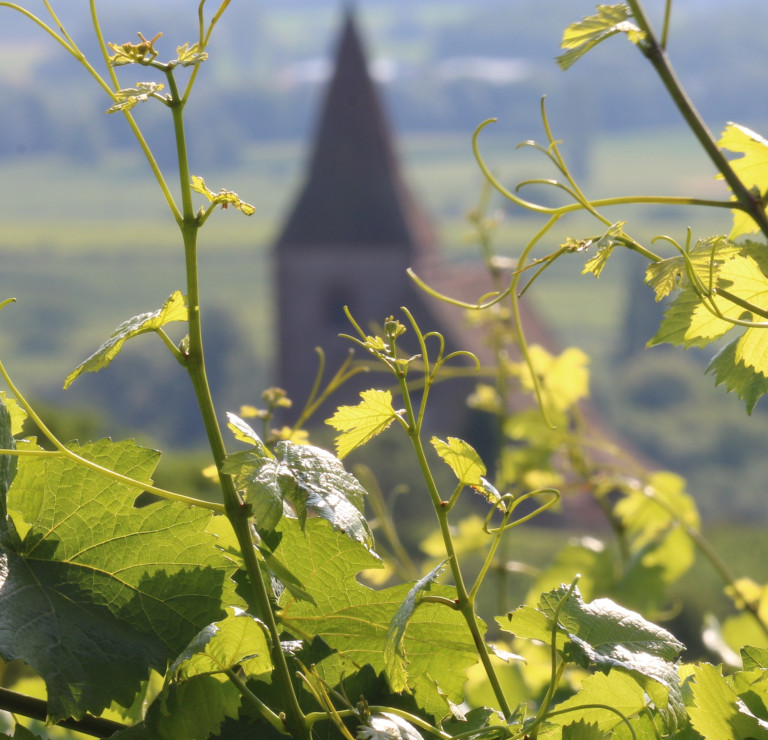
Technical presentation
| Bottling : | September 2010 |
|---|---|
| Acquired alcohol : | 14° |
| Residual sugar : | 53.0 g/l |
| Total acidity : | 3.0 g/l H2SO4 (4.5 g/l Acide Tartrique) |
| pH : | 3.8 |
| Yield : | 32 hl/ha |
| Optimum tasting : | 2014-2034+ |
| Average age of vines : | 40 years |
| Grape variety : | Pinot Gris |
| Terroir : | Clos Windsbuhl |
| Sweetness index : | 5 |
| Soil : | Muschelkalk calcareous, South/South East facing |
Description of the wine Pinot Gris Clos Windsbuhl 2009
This wine is made from botrytised grapes that were selected within our oldest vines in the Clos Windsbuhl vineyard. The botrytis development was more intense in the Pinot Gris grape variety, and the SGN style was for us the best option. This wine took a long time to ferment (about 15 months), has a superb concentration (182° Oechslés or 26° potential) and great acidity. The Pinot Gris finds in this calcareous vineyard some superb characteristics and aromatic profile. Of course, the late ripening character of the Windsbuhl allows for very clean noble rot but also structure. Such rich wines take a long time to mature and clarify, they are usually bottled only 2 or 3 years after the harvest.

Tasting notes
2/2011: this wine is still on its fine lees in cask. The aromas show intense botrytis (honey, bee wax, quince jelly) and also some cask character (vanilla, lees, nutty flavours). The fruit will take more time to come through. The palate is intense, rich, very sweet but superbly structured. Further ageing will help the wine to integrate this richness, but already now it is a real treat to taste it! 9/2013: this wine shows now huge honey, citrus, marmalade nose. Very intense. It is moving in the right direction, very slowly!

The Clos Windsbuhl of Hunawihr
The altitude of the vineyard coupled with Hunawihr’s tardy climate means that the Clos Windsbuhl is often one of the last of our vineyards to be harvested. This explains the aromatic quality of the Clos’ wines and the consistent balance of acidity, a guarantee of good ageing. Although often harvested late, the Windsbuhl grapes are only rarely botryitized, doubtless due to the altitude of the vineyard, but nevertheless often reach high levels of maturity.